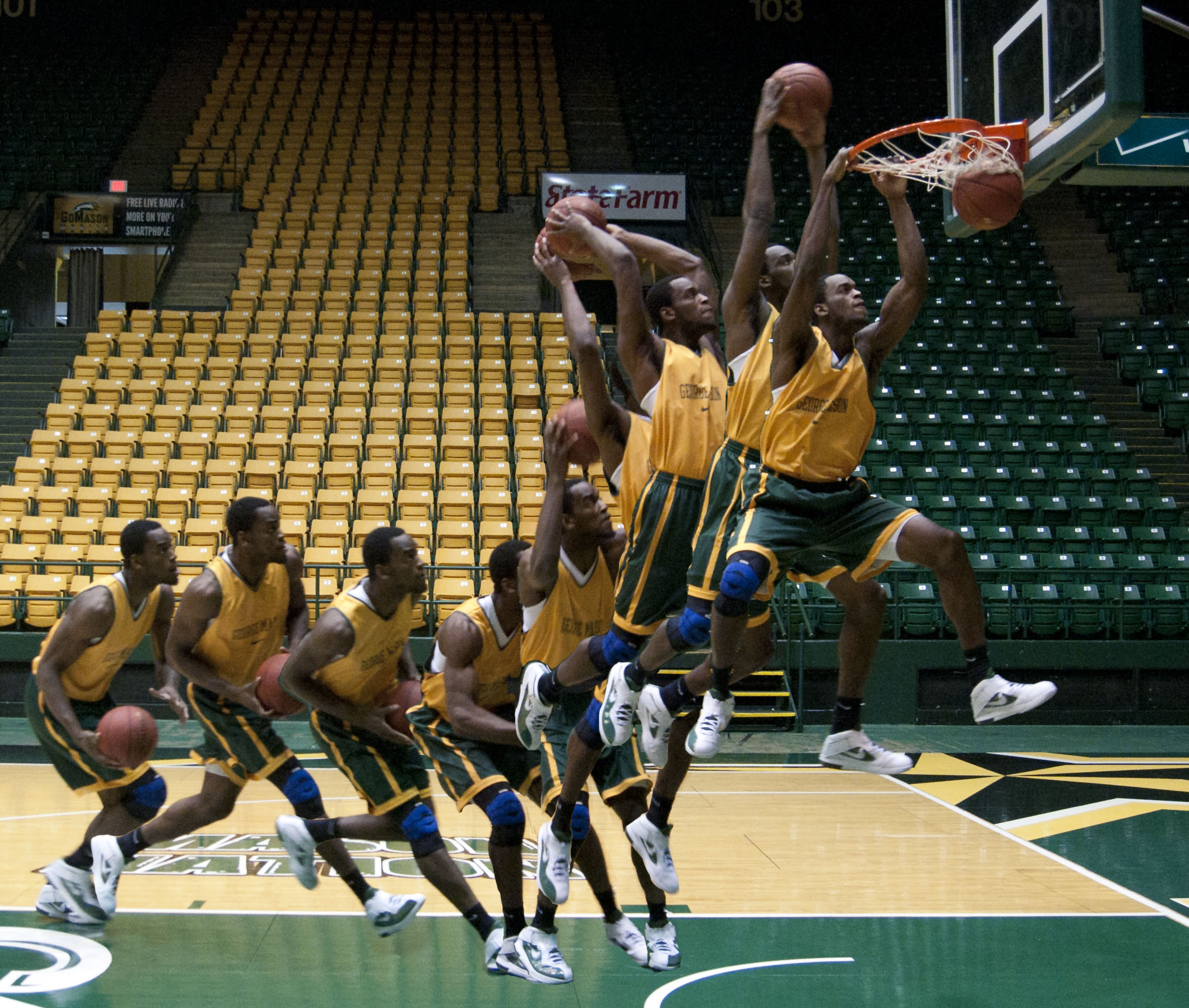Mike Morrison: More Than a Dunk
November 30, 2011 · 0 Comments
by John Powell
Hancock. Front court. Morrison! Exclamation point George Mason!” came the call from Gus Johnson.
Mason fans remember the call almost as well as they remember the play. After tipping a shot, Luke Hancock sent the ball down the court to Mike Morrison – alone – for the dagger of a dunk to end the game and send Mason to the third round of the NCAA tournament.
A testament to the moment, Morrison was running on so much adrenaline that his perspective was a bit less detailed.
“All I know is I contested the shot, the ball bounced to one of my players and I ended up with the ball,” he said. “Once it came to me, I don’t remember dunking it. All I remember is mouthing ‘we got it, we got it.’ Apparently I dunked it too.”
His dunks are known around Fairfax and it is a skill to which he is dedicated. Morrison practices so he can be the best dunker wherever he plays and fans love the theatrics; he realized that very important fact when he made his first dunk as a Patriot.
“I just got in the game with two minutes left in the first half,” Morrison recollected. “It was a buzzer-beater at the end of the half. It was cool. [Andre Cornelius] dropped it off to me in the break, and I sort-of quick-dunked on somebody.”
He is the first to admit that sometimes his emotions get the best of him, but his game is for the fans. And he has had to overcome some difficulty to be that crowd-pleaser.
The week before his sophomore year of high school, Morrison tore his patellar tendon, the tendon that connects the kneecap to the shinbone. The injury generally requires full surgery to be repaired. When people see him on the court, though, they do not see a crippled forward for a reason: his dedication to getting back to full strength took a long journey.
“I rehabbed. I missed most of the season,” he said as he thought through his sophomore season. “But I didn’t finish rehab and I rushed back because I wanted to play. And that’s why I never got strong again.”
When asked if he would do anything differently, he was adamant.
“I wouldn’t play that whole season,” he said. “I’d let that season go.”
Through the rest of high school and his first three years of college – six basketball seasons – he did not realize the damage it caused. Only after his junior year he realized how the stopped rehabilitation hurt his chances at regaining that strength. He even feared he could never regain it completely.
It took a lot to balance his sheer love for the game with an effort to keep his body strong and healthy.
“Right now, I’m in the best shape of my life,” he said.
In his final season, fans and administration alike have recognized that dedication to his craft and to his team. When the Patriots lost their head coach and Luke Hancock – members of their tight-knit family – Morrison kept the team calm and upbeat, not missing a step.
“I ran into Michael Morrison over at the field house,” said Tom O’Connor, Mason’s athletic director, at the press conference announcing Larranaga’s departure. “Michael was very – I love Michael – he was very upbeat. He understood Coach Larranaga was leaving. He handled it in a very mature way.”
It is a side that fans do not often see of Morrison. They see him get rough on the court, throw down dunks, and get mad about fouling out. But they do not see his non-game-time persona. He is relaxed off the court, and a leader on the team. Through dealing with surgery that threw his playing career in flux, the departure of a head coach, and the exit of a starter, he knows that life goes on.
“Just keep on truckin’ man, everyone has their obstacles,” he said. “Everybody has problems, family stuff. Just keep going.”


